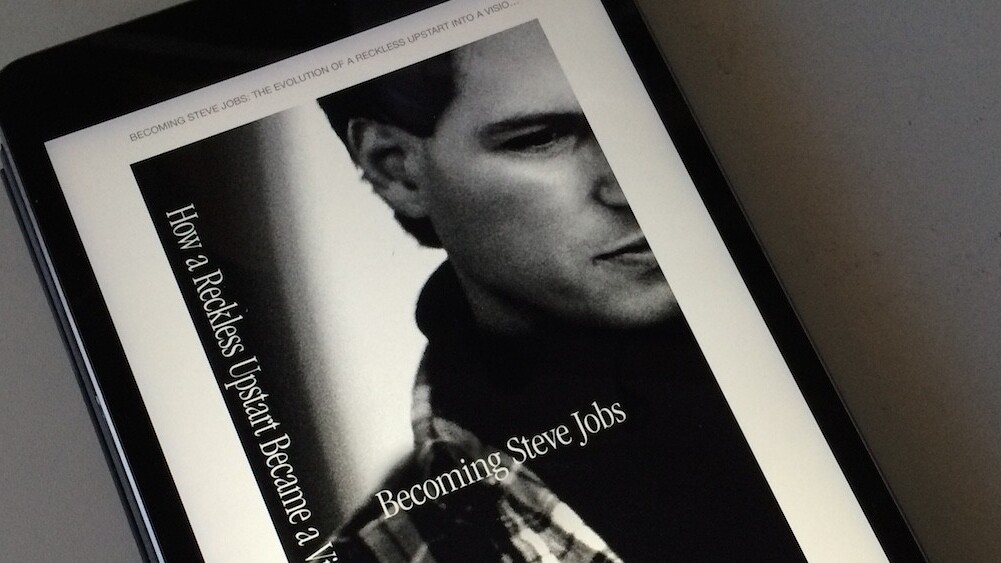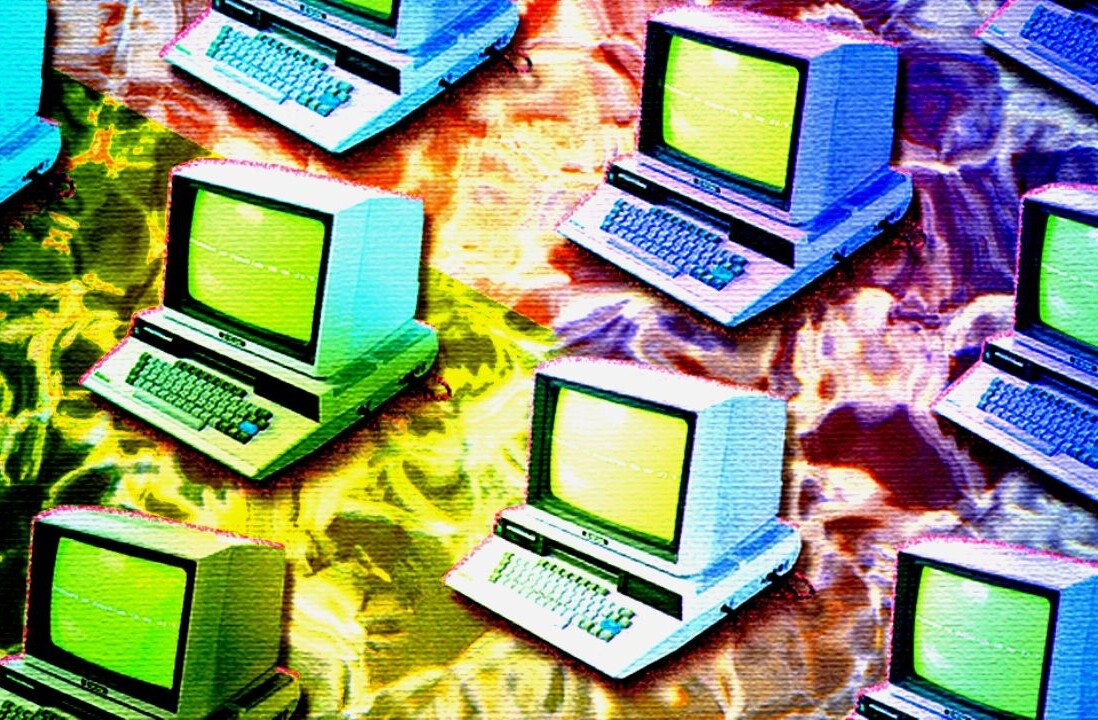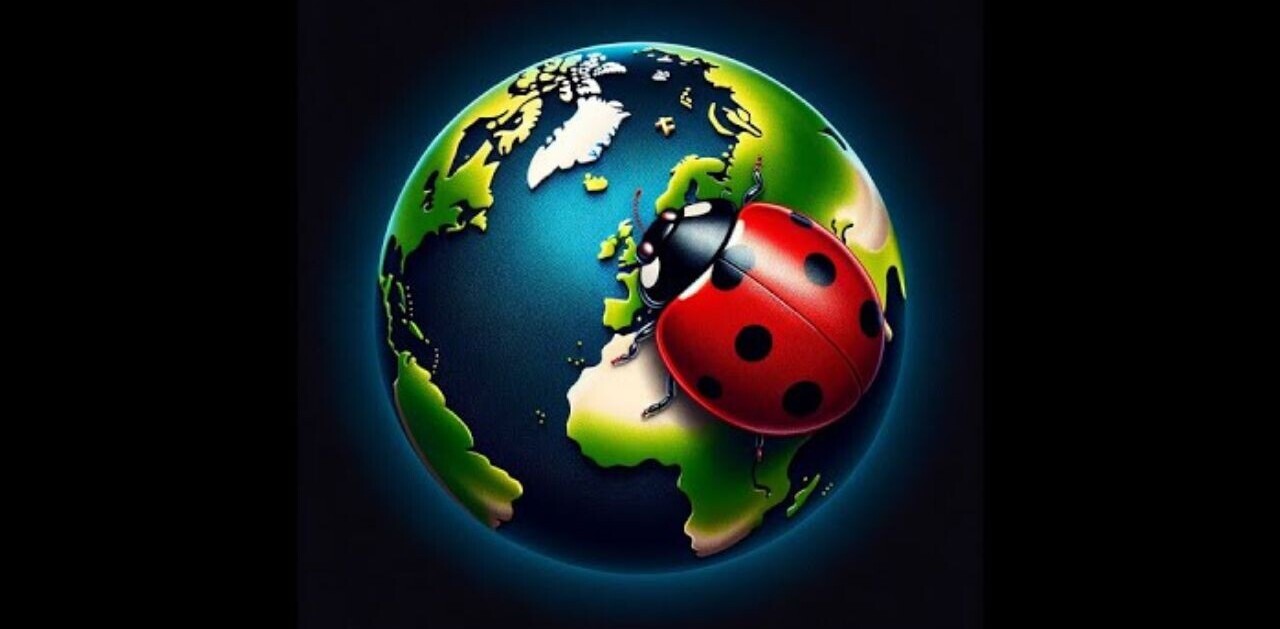
‘Becoming Steve Jobs’ is one of those books that people will have opinions about before they even read it.
In the run up to publication, both tacit and explicit support from Apple has raised it to the status of the book you need to read about the man and cast Walter Isaacson’s official biography as a poorly-rendered, partial portrait.
If you’ve read Isaacson’s book or the many others that came before and after it, you’ll be familiar with the Jobs origin story: his early years, the beginning of Apple, the development of original the Macintosh and his eventual ousting from the company. That’s all covered effectively here.
Jobs 2.0
It’s in attacking the idea of Jobs as a total asshole – differentiating between the more hotheaded ‘Steve 1.0’ of the 70s and 80s and ‘Steve 2.0’ who returned to Apple in 1997 – that ‘Becoming Steve Jobs’ becomes interesting.
The book doesn’t shy away from presenting Jobs as a pretty terrible manager and businessman during his first act at Apple and his second at NeXT, but it’s focused on showing that when he returned to Cupertino, he was a different character.
Where Isaacson’s book is heavy, ponderous read, the writing here is light and fast-paced. It benefits from Schlender’s long relationship with Jobs and the authors’ greater understanding of the industries he changed. Isaacson is a biographer, Schlender and Tetzeli are business journalists and the difference is obvious.
‘Becoming Steve Jobs’ offers a more rounded portrait of the man not only because it doesn’t lean as heavily on its interviews or stretch for historical weight like Isaacson’s book, but because it brings in Schlender’s personal interactions with the Apple co-founder.
The vision of Jobs in his kitchen wearing “threadbare cutoffs with the white front-pocket linings sticking out of worn through areas, and a faded, long-sleeved NeXT T-shirt,” offers a stark contrast with the fixed image of him striding onstage in a custom Issey Miyake turtleneck, blue jeans and New Balance trainers.
A little too close
But the closeness of Schlender’s connection with Jobs is also problematic. It’s obvious why Apple was inclined to cooperate with the writing of the book and has publicly praised it. Despite covering Jobs’ missteps and often awful behaviour, this is the view of a critical friend on a mission to correct what he sees as mischaracterizations.
Schlender admits as much early on the book: “I wanted to take the long view of the man I’d covered for so many years, the man who had called himself my friend.” Though he is at times blunt – “It always struck me, however, that at his childish worst Steve was really nothing more than a spoiled brat.” – there’s a sense of seeking to explain away bad behavior.
It’s notable that Isaacson sticks to the biographer’s convention of using the subject’s surname, referring to “Jobs” throughout, while Schlender and Tetzeli call him “Steve”. That closeness makes the book a lot more readable but also increases the sense of partisanship.
The big promise of ‘Becoming Steve Jobs’ is that it offers a vision of the “real” man. It certainly presents a more complex picture of him than Isaacson’s dry, critical view or speculative takes like Leander Kahney’s fawning ‘Inside Steve’s Brain’ (published before Jobs’s death).
There have already been plenty of pieces filleting this book for ‘fascinating facts’ – notably the revelation that Tim Cook offered to donate part of his liver in a bid to save Jobs’s life – but you’re better off reading it as a complete work than as fragments of anecdotes.
It’s likely that ‘Becoming Steve Jobs’ will become the definitive book on his life. But as he becomes even more of an icon in death than he was while he was alive, we should be more willing to criticize the hyperbole that infects discussions of his life and work.
Hold the hyperbole
Schlender says, “Steve became our generation’s Edison and Ford and Disney and Elvis, all rolled into one” and call hims “the greatest visionary leader of our time.”
He was a great thinker when it came to consumer products, a great showman when it came to selling them and ultimately a great leader at Apple, but those kind of descriptions – though seemingly mandatory now – are overblown. We now talk about his life with the same exaggerated language as he used to sell the products that made him famous.
In fact, reading ‘Becoming Steve Jobs’, made me think about his love for The Beatles, another cultural icon that have been subjected to endless close reading. Does picking books about them lead you to enjoy their music more? Can you learn to write a melody like Lennon and McCartney by picking over the minutiae of how they recorded those great albums?
Of course not. And in the same way, it’s a mistake to look at this book or any other biography as a guide to help you emulate Jobs’s achievements. Though this telling of his life goes beyond what he did to explore who he was, the ‘real’ Steve Jobs will remain a mystery to those of us who didn’t know him. ‘Becoming Steve Jobs’ simply shows him through a prism that Apple is more comfortable with.
Read next: The new Steve Jobs movie is out this October
Get the TNW newsletter
Get the most important tech news in your inbox each week.




